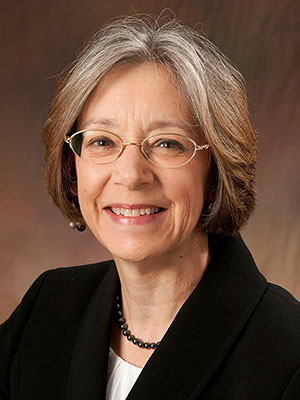
On the Radar
Seventh Circuit Judge Diane Wood to Take Senior Status
The Hon. Diane Wood, former chief judge of the U.S. Court of Appeals for the Seventh Circuit – which covers Wisconsin, Indiana, and Illinois – announced last month that she will take senior status upon confirmation of a successor.
President Bill Clinton nominated Wood to the federal bench in 1995, and she served as chief judge of the 11-member court until 2013.
“Senior judges, who essentially provide volunteer service to the courts, typically handle about 15 percent of the federal courts’ workload annually,” according to U.S. Courts.
As of mid-December 2021, there were 79 vacancies on the federal judiciary, with 26 nominees pending.
One vacancy is in the U.S. District Court for the Eastern District of Wisconsin. Judge William Griesbach retired in 2019. Last month, President Joe Biden nominated William S. Pocan to fill the seat. Pocan (U.W. 1984) is the deputy chief judge of the Milwaukee County Circuit Court, where he has served since 2006.
Quotable
“It will be the first time legal sports betting takes place in Wisconsin.”

– Green Bay Press-Gazette reporter Frank Vaisvilas, reporting on a new gaming compact amendment between the state of Wisconsin and the Oneida Nation.
Gov. Tony Evers and the Oneida Nation signed the agreement in July 2021 before it headed to the U.S. Bureau of Indian Affairs for final approval. In November, the Oneida Nation’s main casino in Green Bay opened the sports book, taking bets on all professional sports, including college sports except for contests featuring college teams from Wisconsin.
A 2018 U.S. Supreme Court decision – Murphy v. National Collegiate Athletic Association – opened the door for states to allow gambling on sports despite the Professional and Amateur Sports Protection Act of 1992 (PASPA).
The Court “rejected the argument, made by the leagues and the federal government, that the PASPA provision barring states from authorizing sports betting does not ‘commandeer’ the states,” wrote Amy Howe at SCOTUS blog.
Got a Nugget to Share?
Send your ideas for interesting facts, trends, tips, or other bits and bytes to wislawmag@wisbar.org, or comment below.
By the Numbers
28%
Of all attorneys who argued cases before the U.S. Court of Appeals for the Seventh Circuit in 2019, only 28 percent were women, according to a recent report published by the ABA Commission on Women in the Profession. That’s a 4 percent increase from a decade ago.
“If the rate of change remains constant,” the report noted, “it will take nearly four more decades – until 2059 – until women comprise 50% of all attorneys arguing before the 7th Circuit.”
Seventh Circuit Court of Appeals Judge Amy St. Eve co-authored the report, titled How Unappealing: An Empirical Analysis of the Gender Gap among Appellate Attorneys.
“The type of data-driven research found in this report is crucial to understanding gender disparity in the legal profession,” said ABA President Reginald Turner. “This report should be read by legal decision-makers across the country.”
Source: ABA Journal
Tech Tip
Beware: Business Email Compromise Scam

The State Bar of Wisconsin has received reports of a business email compromise scam in which scammers impersonate members of the State Bar’s leadership team and request help in making financial transactions.
In one case, the scammer sent an email impersonating a member of leadership and asked the recipient to purchase gift cards that would be awarded to “diligent partners.”
Failure to uncover the scam, which can look legitimate on the surface, may have led to the purchase of gift cards and delivery as directed by the scammer.
Another scam, uncovered by the University of Wisconsin, asked recipients to send their cell phone numbers to the campus leader the scammer was impersonating.
These kinds of scams are just variants of “phishing scams” in which scammers are trying to obtain private information or direct actions that result in financial loss.
Also known as email account compromise, the FBI says the scam “is one of the most financially damaging online crimes.”
Want more technology tips? Contact Christopher C. Shattuck, Practice Management Advisor (Practice 411™), State Bar of Wisconsin, at practicehelp@wisbar.org.
Out There
Need a Realistic New Year’s Resolution?

“If we were honest with ourselves, we would admit that New Year’s resolutions are rarely successful,” writes North Carolina lawyer James Gray Robinson at Above the Law.
But what about realistic resolutions? Here are six from Robinson, a trial lawyer for nearly three decades.
- Quit obsessing about money.
- Quit making promises your body can’t keep.
- Find someone who needs help and help them.
- Be the center of your universe. Do things that make you happy.
- Commit to spend more time with your family.
- Make your life the focus of your work, not your work the focus of your life.
Good Idea?
Fee-free PACER?

A bipartisan bill that would “overhaul the federal judiciary’s PACER electronic court record system and make the downloading of filings free for the public through the elimination of costly fees” advanced to the full U.S. Senate in December.
The Senate Judiciary Committee approved the Open Courts Act of 2021 without opposition, and every committee member (11 Democrats, 3 Republicans) co-sponsored the bill as a show of support.
PACER, which stands for Public Access to Court Electronic Records, is run by the Judicial Conference of the United States. According to a Reuters report, “Users pay $0.10 per page with a cap of $3 per document (with transcripts excluded).”
“Similar legislation has been introduced in the U.S. House of Representatives, which during the last Congress passed a version of the bill despite opposition from the judiciary over its costs. The House Judiciary Committee has yet to take up the latest measure.”
